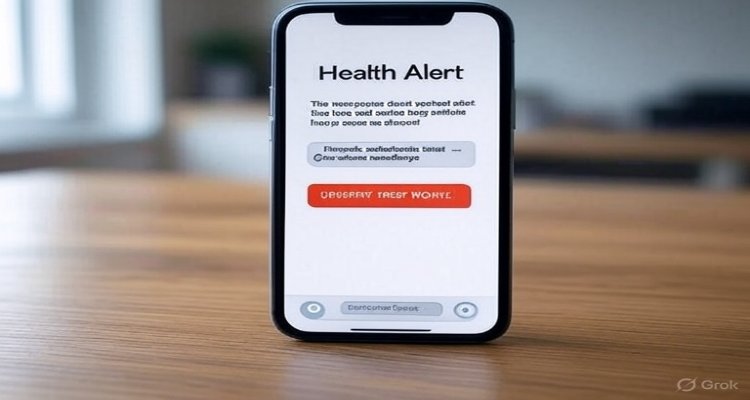When Your Smartphone Knows You’re Sick Before You Do

Smartphones are evolving into health detectives, spotting illness before symptoms appear. Here’s how technology may revolutionize early diagnosis.
Introduction: The Day Your Phone Becomes a Doctor
Imagine this: you wake up feeling perfectly fine, but your phone buzzes with an unusual notification—“Your recent activity patterns suggest you may be developing a respiratory illness. Consider resting and monitoring your health.” You haven’t sneezed once, yet your device might already know something you don’t. This is not science fiction—it’s the next frontier in digital health.
Context & Background: From Fitness Tracking to Illness Prediction
Over the past decade, smartphones have transformed from communication tools into powerful health companions. Equipped with sensors, GPS, and connectivity to wearable devices, they track heart rates, sleep cycles, activity levels, and even blood oxygen levels.
Recent research from universities like Stanford and institutions like the Mayo Clinic has revealed that subtle changes in this data—slightly elevated resting heart rates, altered movement patterns, disrupted sleep—can signal the early onset of illnesses such as flu, COVID-19, or other infections.
While fitness tracking has been mainstream for years, the leap toward predictive health monitoring marks a significant evolution. Instead of simply telling you how many steps you’ve taken, your phone could soon serve as an early-warning system for your health.
Main Developments: The Rise of AI-Driven Health Alerts
Tech companies are investing heavily in AI algorithms that analyze your phone’s health data in real time. Here’s how it works:
- Baseline Tracking – Your smartphone and connected devices gather data about your normal activity, heart rate, and sleep.
- Pattern Analysis – Machine learning models compare current data against your personal baseline.
- Anomaly Detection – If deviations appear—like a sudden drop in daily movement or increased nighttime restlessness—the system flags it.
- Predictive Alerts – The device can then notify you that you might be getting sick—sometimes days before symptoms become obvious.
For example, during the pandemic, studies showed wearable tech could detect COVID-19 up to three days before users felt ill by analyzing subtle physiological changes.
Expert Insight: Promise and Caution
Dr. Alicia Moore, a digital health researcher at Johns Hopkins, explains:
“Early illness detection could revolutionize healthcare by prompting people to seek help before their condition worsens. However, false positives and privacy concerns must be addressed for mass adoption.”
Privacy advocates warn about the dangers of sensitive health data being misused by insurers, advertisers, or even employers. Meanwhile, public health experts see enormous potential in aggregated anonymized data to track outbreaks in real time.
Impact & Implications: A New Era of Preventive Healthcare
If perfected, this technology could transform healthcare in several ways:
- Faster Treatment – Early alerts could mean catching infections before they spread, reducing hospital visits.
- Epidemic Control – Authorities could identify outbreak clusters faster, curbing pandemics.
- Personalized Health Plans – Data could guide lifestyle changes before minor issues escalate.
However, the path forward hinges on building public trust—ensuring strict privacy controls, transparent data usage policies, and user consent.
Conclusion: Your Pocket-Sized Health Guardian
The day may soon come when your smartphone is more than a communication device—it’s a silent guardian of your well-being. The technology is promising, but its success will depend on balancing medical accuracy with ethical safeguards.
When your phone tells you “You might be getting sick”, it won’t be an overstep—it could be a life-saving whisper from the future.
Disclaimer: This article is for informational purposes only and does not constitute medical advice. Always consult a healthcare professional for diagnosis and treatment.










